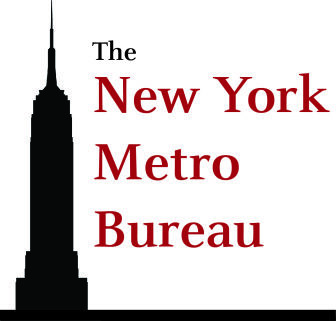For more than a month, as the coronavirus pandemic swept through Louisiana, detained juveniles sat in the nearby juvenile jail while Orleans Parish Juvenile Court’s courtrooms — both virtual and real — sat empty.
As the other juvenile courts in Louisiana scrambled to hold essential hearings over the internet through platforms such as Zoom because of the coronavirus pandemic, the Orleans Parish Juvenile court did not.
 Instead, they closed their doors on March 19 after announcing that two people who had attended a hearing nine days earlier had tested positive for COVID-19. All hearings stopped. Instead, the judges ruled on individual cases and released detained youths at their discretion. Beyond submitting motions that either were not ruled on or were denied, public defenders couldn’t advocate for their young detained clients. This went on until April 23, when a judge from the Fourth Circuit Court of Appeals ordered them to begin holding virtual hearings.
Instead, they closed their doors on March 19 after announcing that two people who had attended a hearing nine days earlier had tested positive for COVID-19. All hearings stopped. Instead, the judges ruled on individual cases and released detained youths at their discretion. Beyond submitting motions that either were not ruled on or were denied, public defenders couldn’t advocate for their young detained clients. This went on until April 23, when a judge from the Fourth Circuit Court of Appeals ordered them to begin holding virtual hearings.
Public defenders and juvenile justice experts said the 36-day suspension of continued custody hearings violated the constitutional rights of detained youths, As part of due process, youths charged with a crime within the juvenile justice system and detained have the right to have their lawyer argue for their release in front of a judge within three days. The judges did use their discretion to release youth from detention who they might not have under normal circumstances, the lawyers and experts said.
But, without hearings, the youths who were not released were essentially being held indefinitely, the lawyers and experts said. All other Louisiana courts that dealt with juvenile delinquency had switched to virtual hearings. Why Orleans Parish had not was a mystery.

Renee Slajda
“We are just glad that our clients’ constitutional rights are being respected and that we have a chance to advocate for them in front of the judge,” said Renee Slajda, the communications director for the Louisiana Center for Children’s Rights, the main juvenile public defender in Orleans Parish.
Richard Pittman, the director of Juvenile Defender Services for the Louisiana Public Defender Board, a state agency that regulates and governs public defense in Louisiana, said that he worries about the lasting effect the time in detention will have on the youth who were denied continued custody hearing for the first month of the pandemic. He said the pandemic is hard enough on youth not in detention, like his 13-year-old daughter who is supposed to enter high school in the fall.

Richard Pittman
“Her teen years might be really, really strange and in ways that aren't really conducive to proper child development,” he said. “This is an entirely different ball game when you're talking about throwing a kid in jail and just leaving them there just because you can't get to them because the court process is itself unsafe for the people involved, allegedly. What impact does that have on a child?”
Executive order interpreted differently
Normally, the court has three days to hold a continued custody hearing, during which the youth’s lawyer can advocate for release or get bond set. If the hearing is not held within three days, the youth should be automatically freed.
However, an executive order issued by Louisiana Gov. John Bel Edwards at the start of the pandemic suspended legal deadlines. The Louisiana State Supreme Court published guidance encouraging remote hearings, directed first at all courts, then issued again on April 6 specifically to juvenile courts.
But whether the suspended deadlines applied to continued custody hearings for juveniles was murky, lawyers said. By their interpretation, the hearings should still be held — especially since Orleans was an outlier by not holding the hearings.
“We could understand if it wasn't exactly within three business days maybe, but it was very clear that the hearings did still need to happen, that the executive order didn't override children's constitutional rights. That was our interpretation,” Slajda said.
Orleans Parish Juvenile Court Chief Judge Candice Bates-Anderson could not be reached for comment. Whether the court interpreted the executive order as meaning they did not have to hold hearings is unclear. But she said in March that detention hearings would be suspended but she would still have the authority to release youth.
“I monitor every single kid that comes in, and thus far I feel that the kids that have come in represent a danger to themselves and others in our community,” she said.
The Orleans Parish Juvenile Court is one of four juvenile-specific courts in the state with judges who rule only on juvenile cases. In districts without juvenile courts and juvenile judges, regular judges hear juvenile cases.
Public defenders believe that by not holding any hearings for the first month of the pandemic, Orleans was an outlier in Louisiana. The other courts that dealt with juvenile cases, either specifically or in conjunction with other cases, switched to continued custody hearings remotely once it became obvious that in-person court proceedings were too dangerous.
Most judges adapted quickly
“St. Tammany and Washington Parish, we did not skip a beat,” said Shannon Christian, the juvenile divisions supervisor for the 22nd Judicial District Court Public Defenders Office, made up of the two parishes north of Orleans. The district does not have a specific juvenile court but rather a single judge, Judge Scott Gardner, who hears all juvenile cases.
As the totality of the pandemic began to hit, Gardner, who has the reputation of being tech savvy, made an immediate and smooth transition to using Zoom for all his juvenile court proceedings, Christian said. In fact, juvenile cases were prioritized.
“We were up and going on delinquent before they even had a court date on the felony stuff,” Christian said.
The court has managed to hold all juvenile hearings — not just those deemed essential, she said. The only hearings that were continued to a later date were adjudications that required multiple witnesses, she said.
The city courts in Slidell and Bogalusa didn’t have as smooth a transition, she said, but once they had a new system in place, the hearings continued.
Meanwhile, the juvenile court in Calcasieu Parish in the western part of the state near the Texas border has never held a juvenile in detention past the three-day mark without a lawyer being able to get before a judge, said Necole Williams, a juvenile defender with the Calcasieu Public Defenders. Calcasieu Parish has a court specific to juvenile cases with three different judges.
Each judge adapted to working remotely differently, Williams said. All three held informal hearings first, over the phone, Zoom or Microsoft Teams, during which she could advocate for the release of her client. If a judge did not release the youth during the informal hearing, they had the option of a formal hearing over Zoom.
But getting to that point was bumpy.
“I don't want to make it seem like it was a cake-walk, it was not,” she said about the transition period. “We had to figure it out. But we were able to figure it out.”
She said they were lucky too. During the first week of operating remotely, they were granted an accidental grace period.
“It seems it only worked out that way because that first week, when everyone was scrambling, we didn't have anyone get arrested,” she said.
Both Calcasieu and Washington and St. Tammany parishes reopened for in-person court proceedings in May. Orleans Parish courts are supposed to reopen today but could not be reached to confirm this.
With other districts having successfully transitioned to remote hearings, Hector Linares, an associate clinical professor at Loyola University New Orleans College of Law, said he did not see a reason why Orleans Parish did not.
“It’s pretty clear that it’s a right that these youth are entitled to,” he said. “And through technology, it was possible to do it.”
But now that they’ve begun, it seems as though the court is doing them regularly, he said, and he was glad.
Pittman, of the Louisiana Public Defender Board, said the legal ramifications are a bit more complicated since it remains unclear whether or not the three-day term period for holding the hearings was suspended or not because of the executive order.
“Was the three day-term period suspended? Was it not suspended? Was there some sort of implicit good cause finding for all these cases? I can't answer those questions,” he said. “Courts are going to have to sort that out.”
